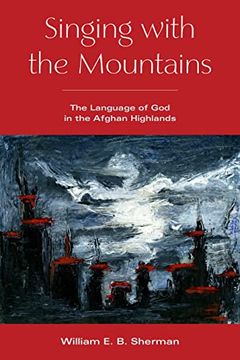Share
Singing With the Mountains: The Language of god in the Afghan Highlands (in English)
Sherman William (Author)
·
Fordham University Press
· Hardcover
Singing With the Mountains: The Language of god in the Afghan Highlands (in English) - Sherman William
$ 135.71
$ 169.64
You save: $ 33.93
Choose the list to add your product or create one New List
✓ Product added successfully to the Wishlist.
Go to My WishlistsIt will be shipped from our warehouse between
Friday, July 05 and
Monday, July 08.
You will receive it anywhere in United States between 1 and 3 business days after shipment.
Synopsis "Singing With the Mountains: The Language of god in the Afghan Highlands (in English)"
An illuminating story of a Sufi community that sought the revelation of God. In the Afghan highlands of the sixteenth century, the messianic community known as the Roshani-yya not only desired to find God's word and to abide by it but also attempted to practice God's word and to develop techniques of language intended to render their own tongues as the organs of continuous revelation. As their critics would contend, however, the Roshaniyya attempted to make language do something that language should not do--infuse the semiotic with the divine. Their story thus ends in a tower of skulls, the proliferation of heresiographies that detailed the sins of the Roshaniyya, and new formations of "Afghan" identity. In Singing with the Mountains, William E. B. Sherman finds something extraordinary about the Roshaniyya, not least because the first known literary use of vernacular Pashto occurs in an eclectic, Roshani imitation of the Qur'an. The story of the Roshaniyya exemplifies a religious culture of linguistic experimentation. In the example of the Roshaniyya, we discover a set of questions and anxieties about the capacities of language that pervaded Sufi orders, imperial courts, groups of wandering ascetics, and scholastic networks throughout Central and South Asia. In telling this tale, Sherman asks the following questions: How can we make language shimmer with divine truth? How can letters grant sovereign power and form new "ethnic" identities and ways of belonging? How can rhyme bend our conceptions of time so that the prophetic past comes to inhabit the now of our collective moment? By analyzing the ways in which the Roshaniyya answered these types of questions--and the ways in which their answers were eventually rejected as heresies--this book offers new insight into the imaginations of religious actors in the late medieval and early modern Persianate worlds.
- 0% (0)
- 0% (0)
- 0% (0)
- 0% (0)
- 0% (0)
All books in our catalog are Original.
The book is written in English.
The binding of this edition is Hardcover.
✓ Producto agregado correctamente al carro, Ir a Pagar.

